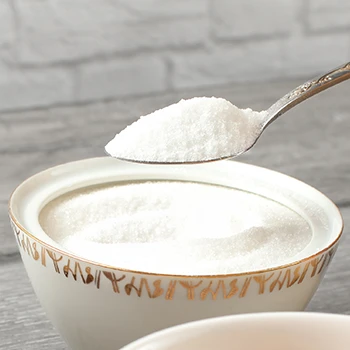As an experienced doctor frequently consulted by expectant mothers, I often encounter questions about the safety of taking pre-workout supplements during pregnancy.
To address these concerns, I've crafted this article, which delves into the intricacies of pre-workout ingredients and their potential impact on both mother and baby.
We'll explore which components might be harmful and discuss the availability of pregnancy-friendly pre-workout options.
Let's dive in.
Quick Summary
- You can take pre-workouts while pregnant, but it's important to consult your doctor before taking the step.
- Studies published in the National Library of Medicine show that creatine may not only be safe during pregnancy but can be beneficial to the baby’s health,
- Proprietary blends, pre-workouts with artificial sweeteners, and those with more than 200 mg of caffeine can be harmful to a pregnant woman and a baby's health.
- In my professional opinion, pregnant women should opt for natural foods to enhance their workout performance such as Greek yogurt.
Should You Take Pre-workout While Pregnant?

You may be able to take pre-workout while pregnant if the doctor determines that there is no risk involved with the pre-workout ingredients and you have no underlying health issues.
As a doctor myself, when determining whether taking a pre-workout supplement is a wise choice for a woman and her unborn baby, the most critical factors are; the pre-workout ingredients and proprietary blends.
I always advise my patients, pregnant or not, to avoid proprietary blends. That's because you do not fully know what is in them like how much caffeine or artificial ingredients are in the formula.
A proprietary blend may also contain unnecessary additives and fillers, and the safety of these additions could be unknown.
What Ingredients Can Be Harmful to Your Baby?

Let’s look at the common ingredients in a pre-workout supplement that may affect your baby.
Caffeine
Caffeine is the most common ingredient in pre-workout supplements because it can significantly enhance your exercise by boosting energy, improving focus, and increasing stamina, as per studies published in the National Library of Medicine [1].
Drawing from my experience, I advise caution with caffeine. It's not just about the quantity but also its impact on hormonal balance, including estrogen levels, crucial for a healthy pregnancy. In my practice, I've seen varied responses to caffeine among pregnant women, reinforcing the need for personalized advice.
In addition to caffeine, it's important to consider the psychological effects of pre-workout supplements, such as increased anxiety or mood changes.
Recently, though, the consensus is that limited caffeine is okay and should not exceed 200 mg daily.
Caffeine content is where the challenge lies in pre-workout supplements, as a single serving can far exceed 200 mg, that's why in these cases as an experienced doctor, I recommend pre-workouts without caffeine.
Artificial Sweeteners

The safety of artificial sweeteners depends on which sugar substitute you are considering.
Artificial sweeteners like aspartame and sucralose are considered safe during pregnancy but should be used moderately, as per reports published by the National Institutes of Health [2].
Another option that some people choose over artificial sweeteners is Stevia, a natural sweetener made from the leaves of the stevia plant.
It has gained traction as an all-natural option and is popping up more and more on the ingredient lists of many pre-workout supplements.
Many believe it is safe, but research is ongoing.
Creatine
Research continues on whether creatine supplementation is suitable during pregnancy.
Many gym-goers, including pregnant women, look for creatine on the label of their dietary supplements because it can aid muscle recovery during exercise, as per WebMD [3].
But is it safe?
Studies published in the National Library of Medicine are showing that creatine may not only be safe during pregnancy but can be beneficial to the baby’s health, so looking for a pre-workout that contains creatine may be a good idea [4].
Are There Pregnancy-Friendly Pre-workout Options?

As a physician, I usually recommend non-stimulant pre-workouts for pregnant women.
In my years of advising pregnant women, I've consistently found that whole foods are the safest and most effective way to enhance exercise performance.
Some alternative energy boosters include:
- A nutrient-packed smoothie and the ingredient combinations are endless. Add a scoop of protein powder and take a couple of hours before working out.
- A nut butter and fruit preserve sandwich on whole-grain bread is a good choice a couple of hours before exercise.
- Greek yogurt with your favorite fruit is an excellent option if your workout starts within an hour. It has proven beneficial for many of my patients.
- Whole-grain cereal and milk are best if your workout begins in a couple of hours.
- A piece of fruit like an apple, orange, or banana can be eaten right before working out. These natural alternatives can be great energy boosters when working out during pregnancy.
“Carbs help maximize glycogen stores for high-intensity exercise, while fat helps fuel your body for longer, less intense workouts. Meanwhile, protein improves muscle protein synthesis and aids recovery.”
- Arlene Semeco, MS, RD
What Can I Use Instead?
Based on my clinical experience, I often recommend all-natural protein powders as a safer alternative to pre-workouts for pregnant women.
This advice stems from observing positive outcomes in my patients, ensuring they get the necessary nutrients without the risks of certain pre-workout ingredients.
A minimum of 60 mg of protein daily is advisable for women during pregnancy.
According to research from the University of California San Francisco, a single scoop of protein powder can give you up to half of that recommended dosage [5].
FAQs
Does Pre-Workout Cause Congenital Disabilities?
Pre-workout may cause congenital disabilities if it contains DMAE, as this compound has been linked to Spina Bifida (a spine birth defect).
Can You Have Caffeine When Pregnant?
You can have caffeine when pregnant, but it should be limited to less than 200 mg daily or approximately a 12-ounce cup of coffee. It may be best to look for a supplement with no or low stimulant content.
References:
- https://pubmed.ncbi.nlm.nih.gov/11583104/
- https://www.ncbi.nlm.nih.gov/pmc/articles/PMC4229159/
- https://www.webmd.com/vitamins-and-supplements/creatine
- https://www.ncbi.nlm.nih.gov/pmc/articles/PMC4007139/
- https://www.ucsfhealth.org/education/eating-right-before-and-during-pregnancy
About The Author
You May Also Like






